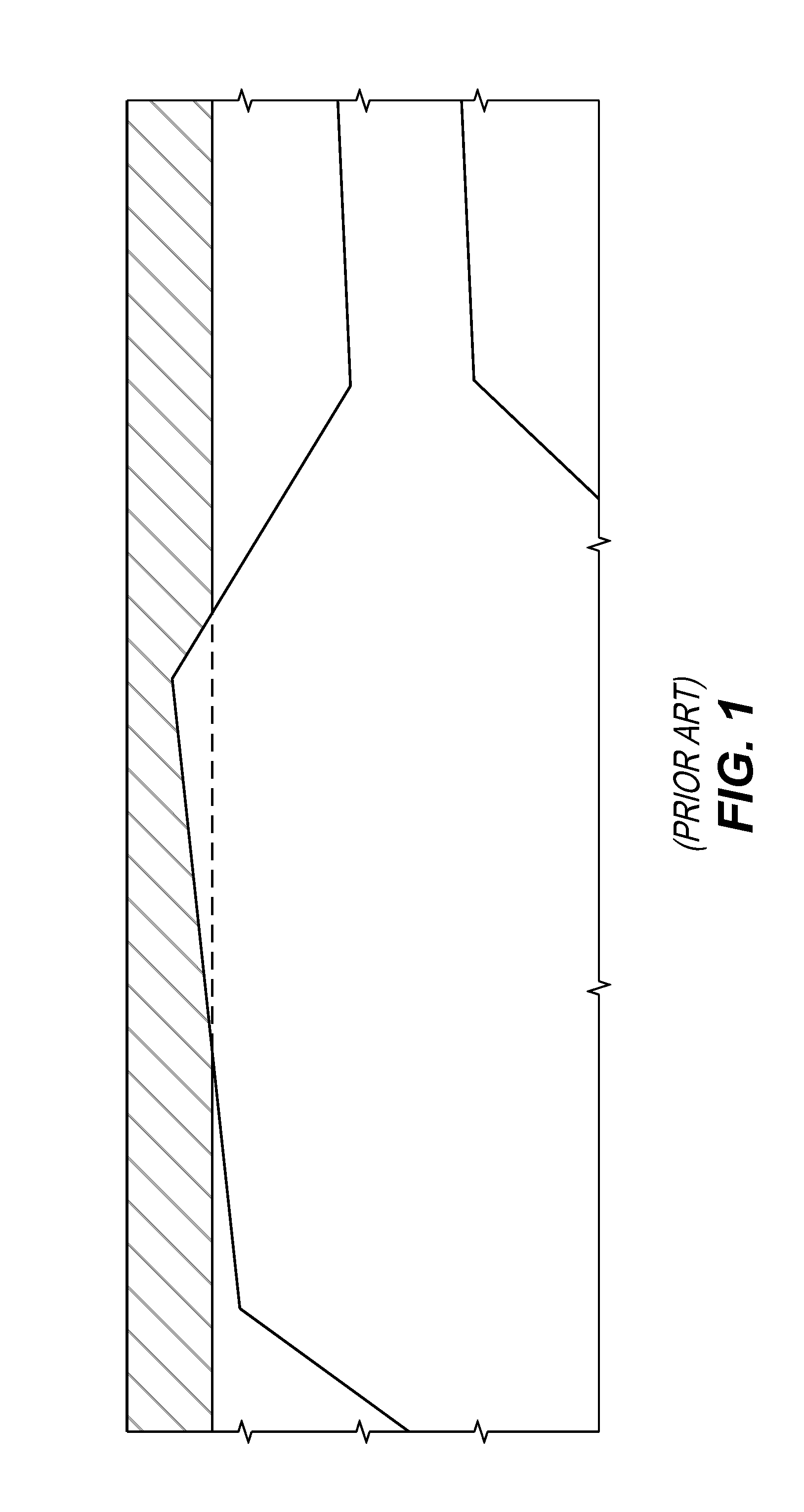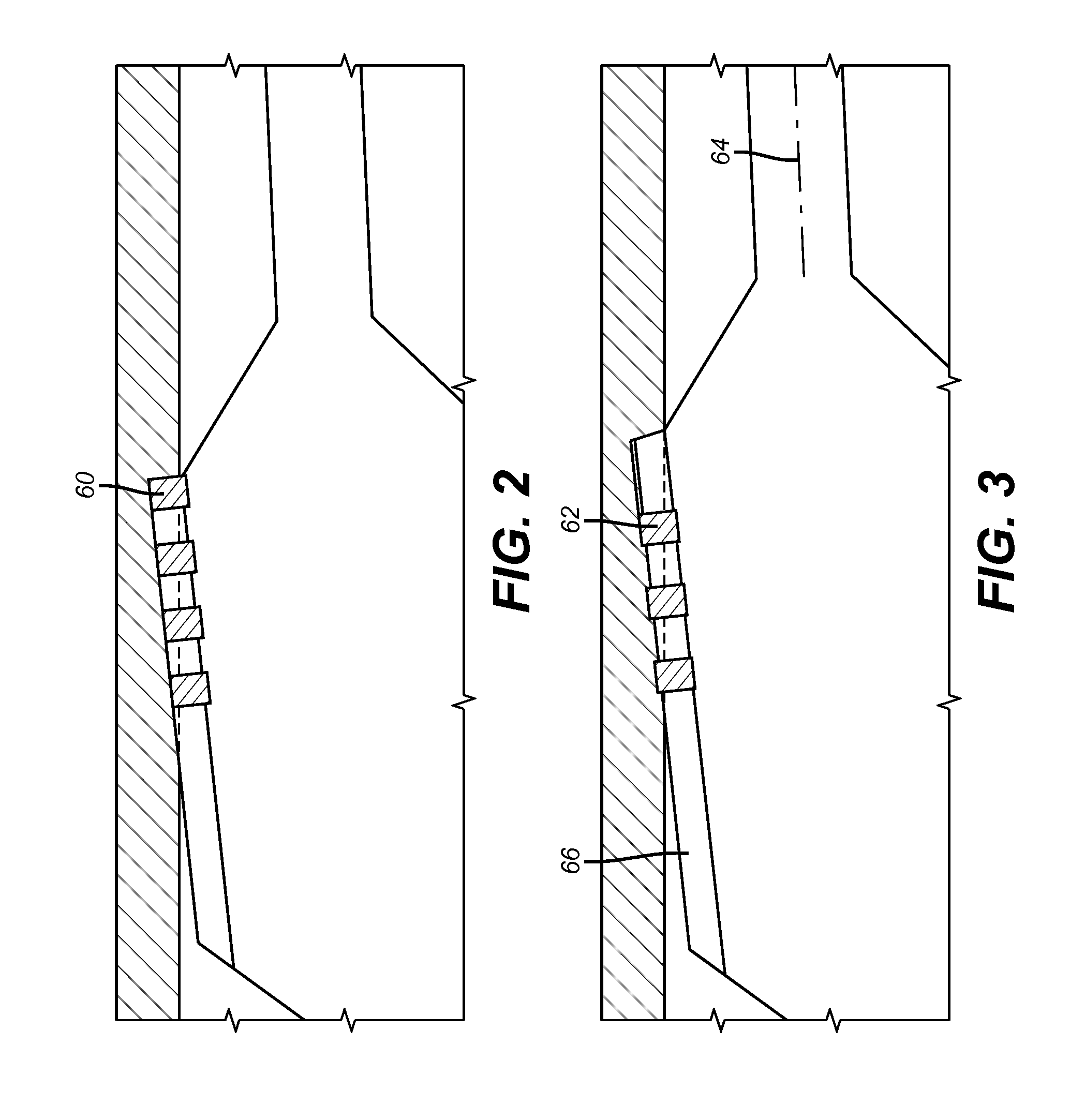Lower Mill Spaced Cutting Ring Structure
a cutting ring and lower mill technology, applied in the field of window milling, can solve the problems of rotary torque increase, mill lock-up, and lower mill blades, and achieve the effects of increasing the contact stress of inserts, reducing rotary torque, and reducing rotary torqu
- Summary
- Abstract
- Description
- Claims
- Application Information
AI Technical Summary
Benefits of technology
Problems solved by technology
Method used
Image
Examples
Embodiment Construction
[0030]FIG. 6 illustrates a casing 10 where a window 12 is started with a window mill 14 running on a ramp 16 of a whipstock 18. A connector 20 connects the whipstock 18 to the lower mill 20. The upper mill 22 is connected to the lower mill 20 by connector 24. The present invention is focused on milling away more casing wall in zone 26 to extend the window 12 length so that larger assemblies can make the turn into the lateral beyond the window 12. At the same time the objective is also to enhance the milling time as well as to get a longer running time for the lower mill 20.
[0031]Comparing FIGS. 4 and 5 it can be seen that the prior design of FIG. 4 added inserts 30 to the blade faces 32 in a very densely packed manner with the idea of putting as much cutting structure at these locations as possible. What this accomplished however was very low contact stress and far less cutting of the wall of the tubular. Instead the inserts simply wore down a part of the inside surface of the tubul...
PUM
 Login to View More
Login to View More Abstract
Description
Claims
Application Information
 Login to View More
Login to View More - R&D
- Intellectual Property
- Life Sciences
- Materials
- Tech Scout
- Unparalleled Data Quality
- Higher Quality Content
- 60% Fewer Hallucinations
Browse by: Latest US Patents, China's latest patents, Technical Efficacy Thesaurus, Application Domain, Technology Topic, Popular Technical Reports.
© 2025 PatSnap. All rights reserved.Legal|Privacy policy|Modern Slavery Act Transparency Statement|Sitemap|About US| Contact US: help@patsnap.com



